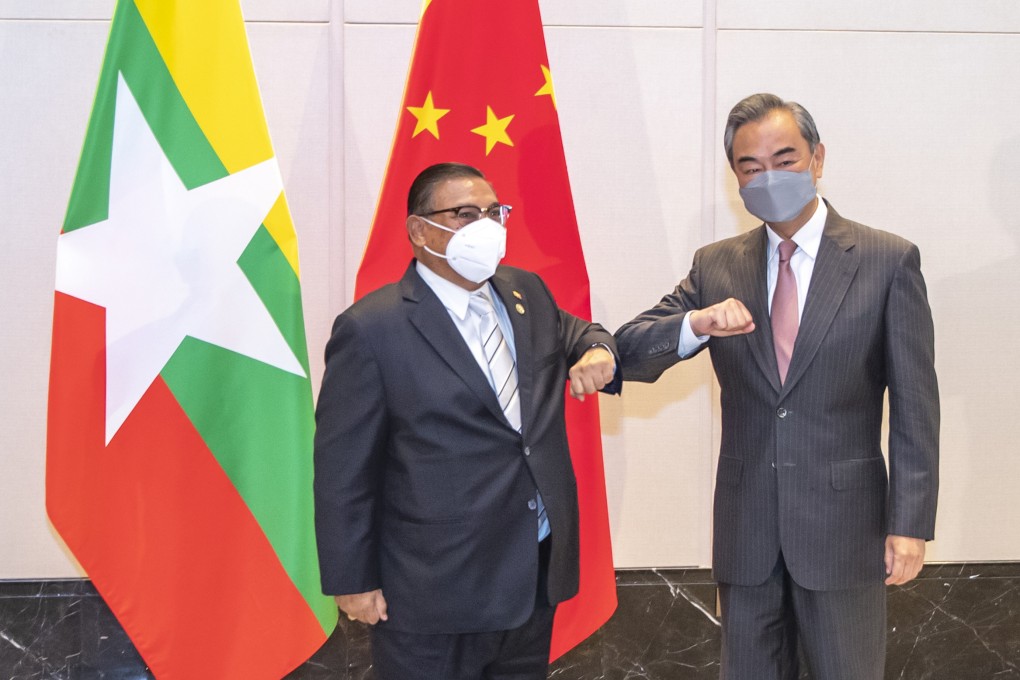Opinion | China’s complex ties with Myanmar shouldn’t be mistaken for confused diplomacy
- Contrary to much external commentary on China’s role in Myanmar, it neither enjoys unconditional leverage over the country nor has it lost complete control
- Beijing has oscillated between full-throated recognition of the coup regime and publicly communicating with the political opposition led by the NUG

It came nearly seven months after a bomb exploded at a Chinese-backed clothing factory in Pathein, the capital of Ayeyarwady region in southwestern Myanmar, and eight months since a group of unidentified assailants in Mandalay region killed three security guards monitoring pipelines carrying crude oil and natural gas from Myanmar’s southern coast to China’s Yunnan province.
These incidents reflect China’s complex and arguably besieged fate in post-coup Myanmar – a country that remains absolutely vital to Beijing’s geostrategic calculus in the Indian Ocean region.
Since the Myanmar military snatched power from the civilian government in a highly-denounced takeover, Beijing has oscillated between full-throated recognition of the coup regime and publicly communicating with the political opposition led by the National Unity Government (NUG). For lay observers, this might look like confused diplomacy, but for those watching China-Myanmar relations for years, it’s hardly anything out of the ordinary.
Newfound stability
China has long maintained a multidimensional footprint in Myanmar, underpinned by the pair’s vaunted “Pauk Phaw” (fraternal) relationship. Their layered bilateral ties are, in large part, shaped by an uneven history – marked sometimes by extreme tension and at others, unprecedented cooperation.

